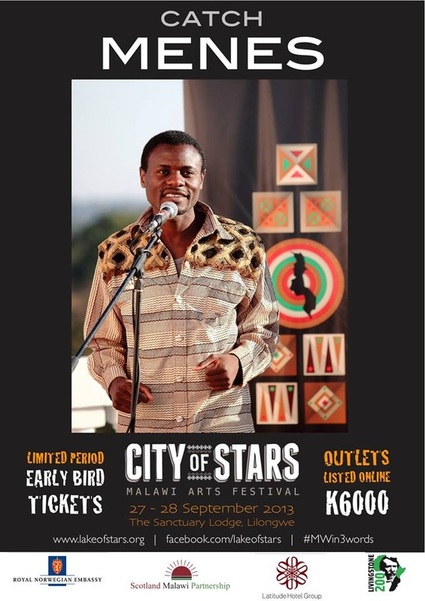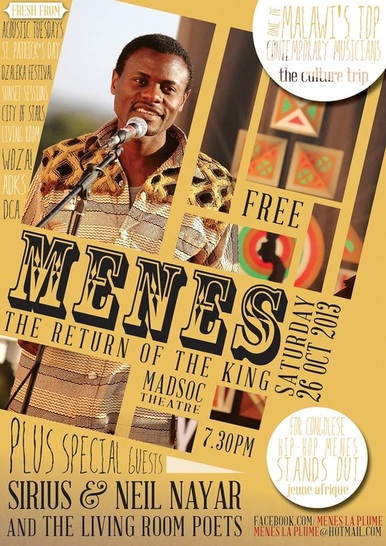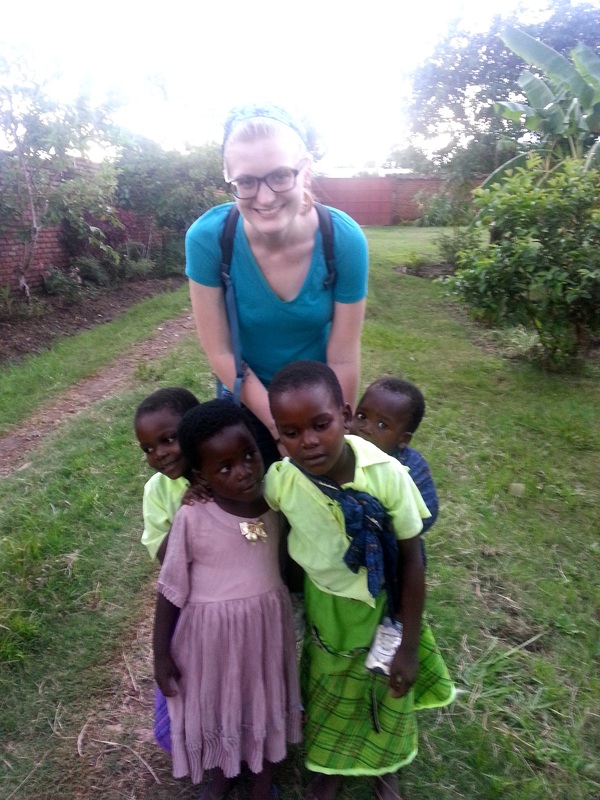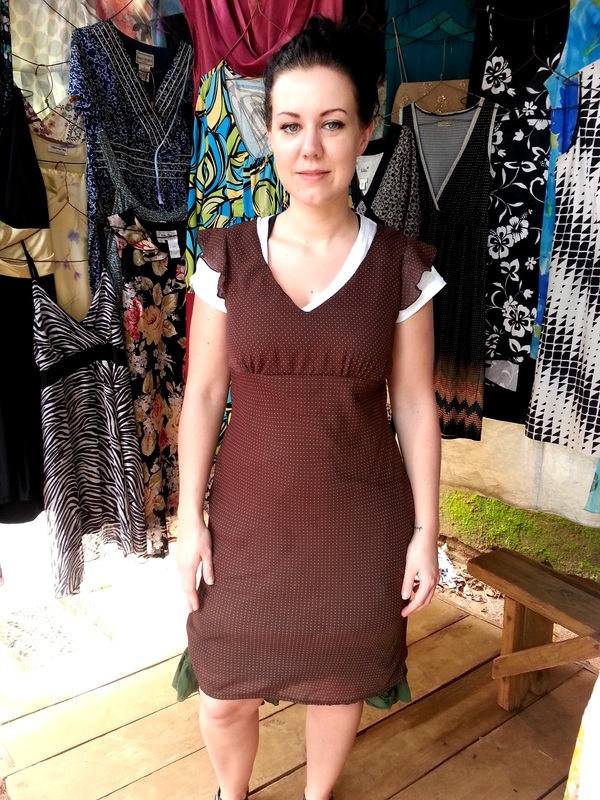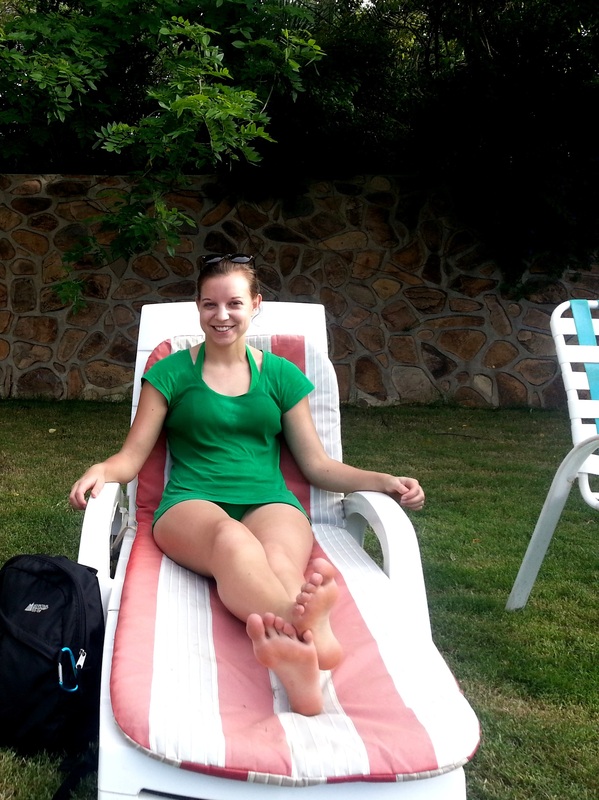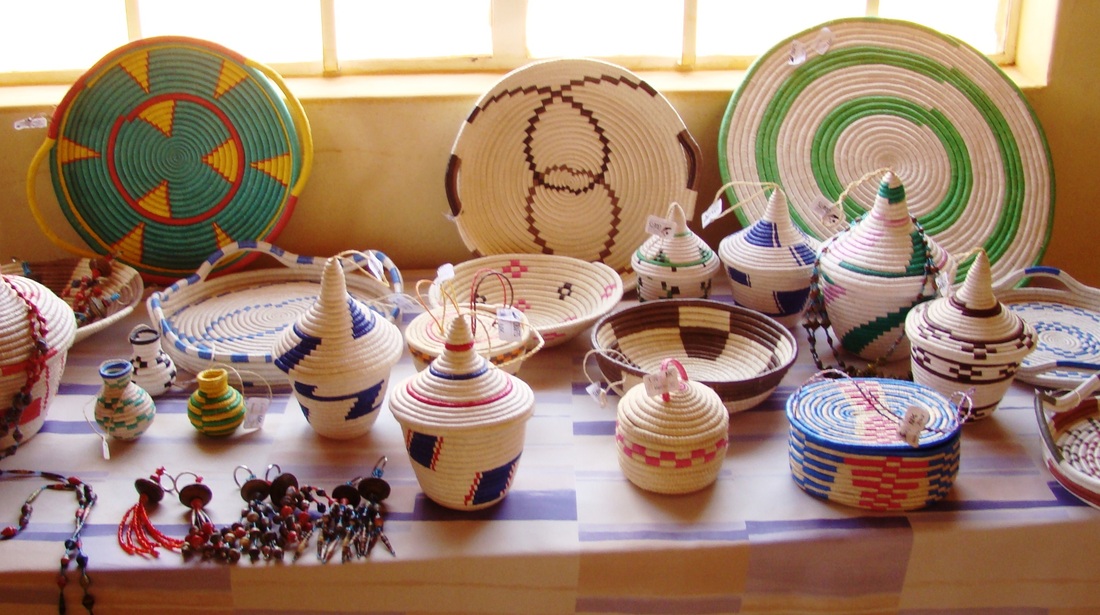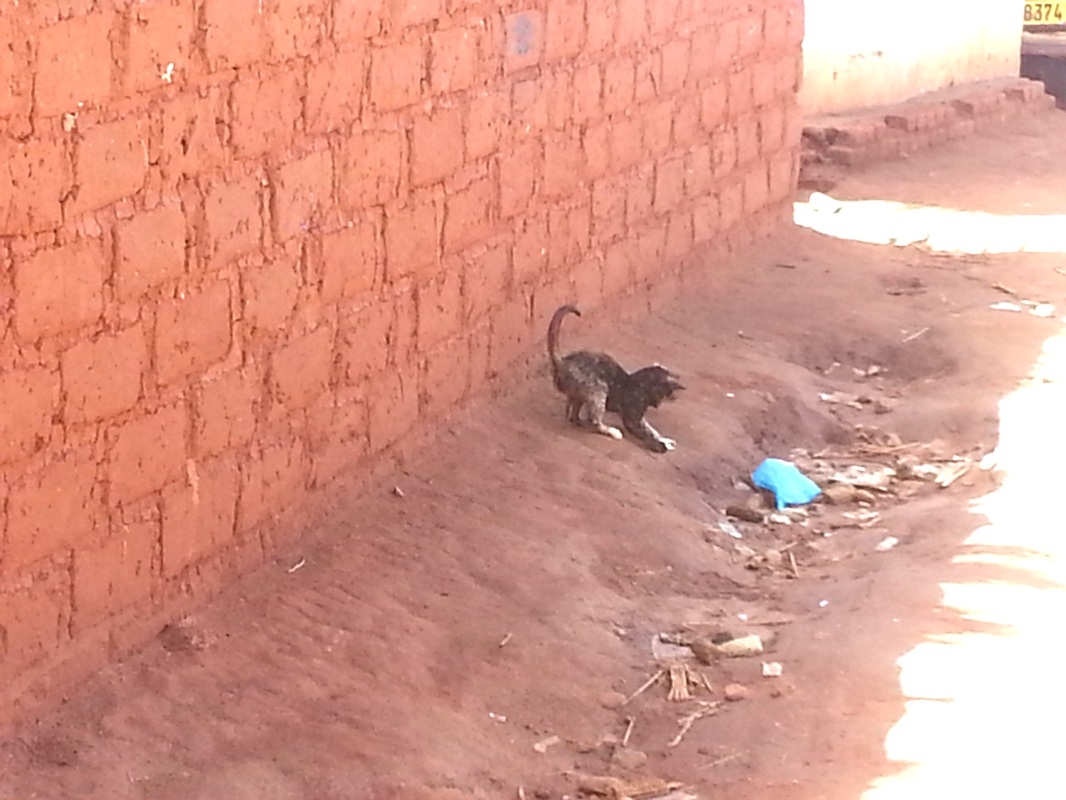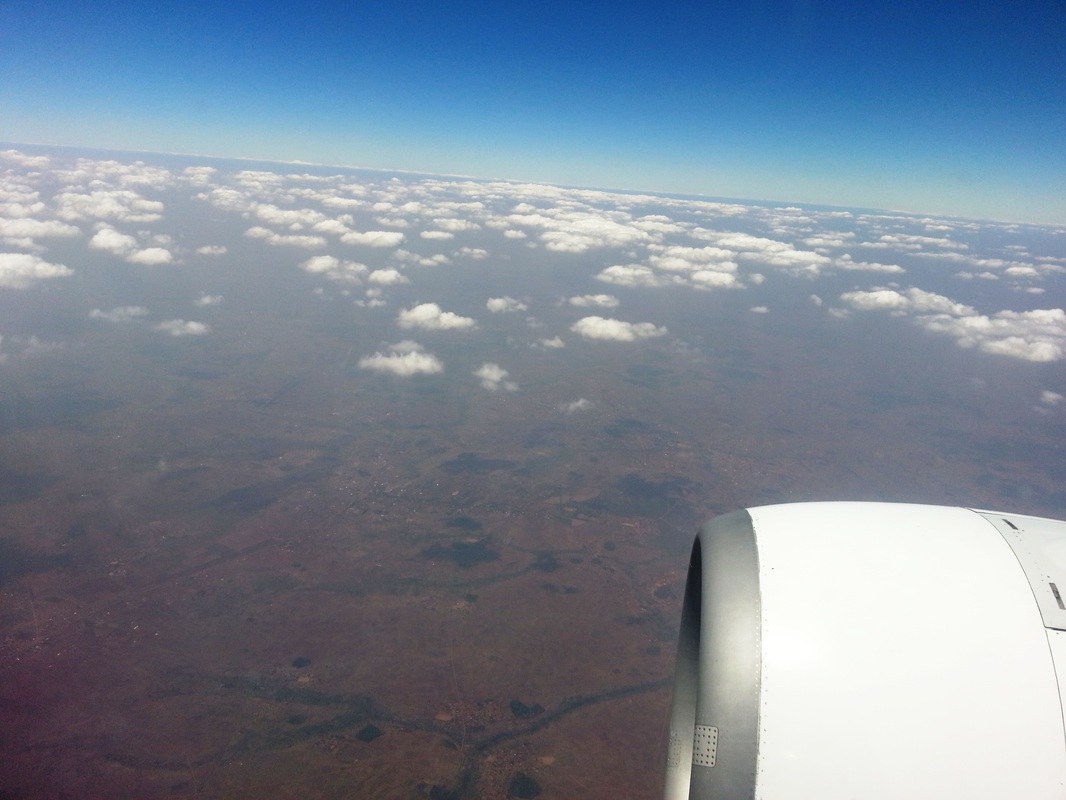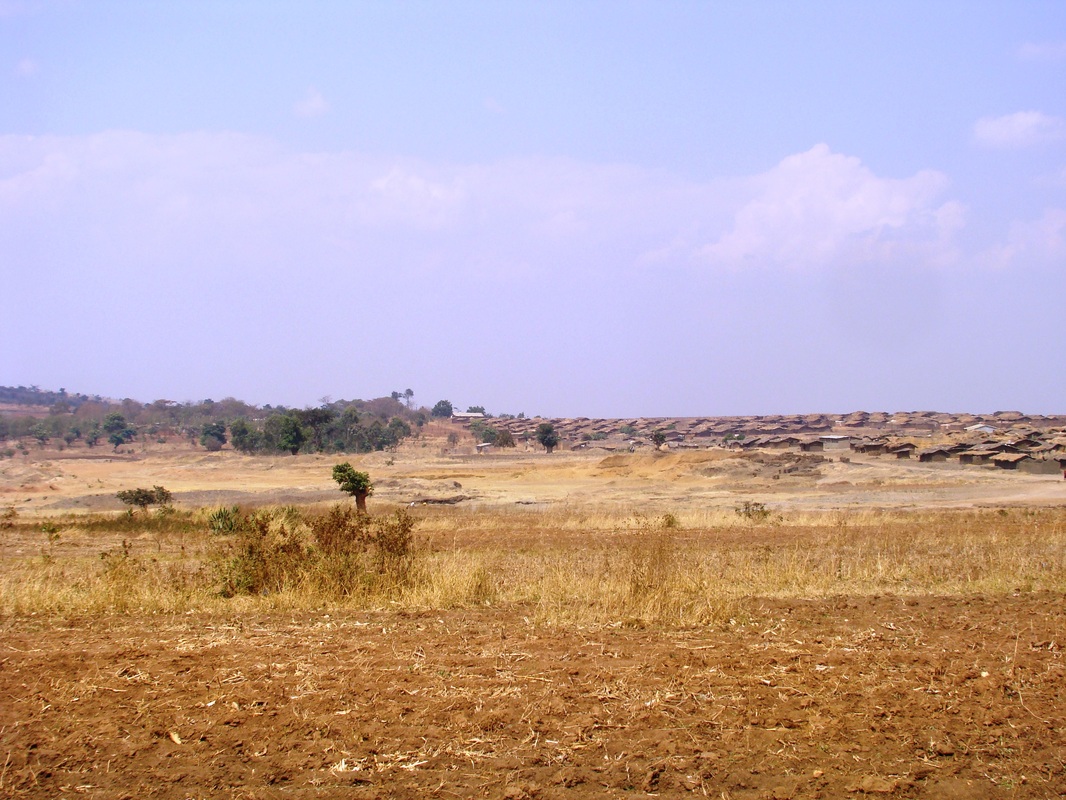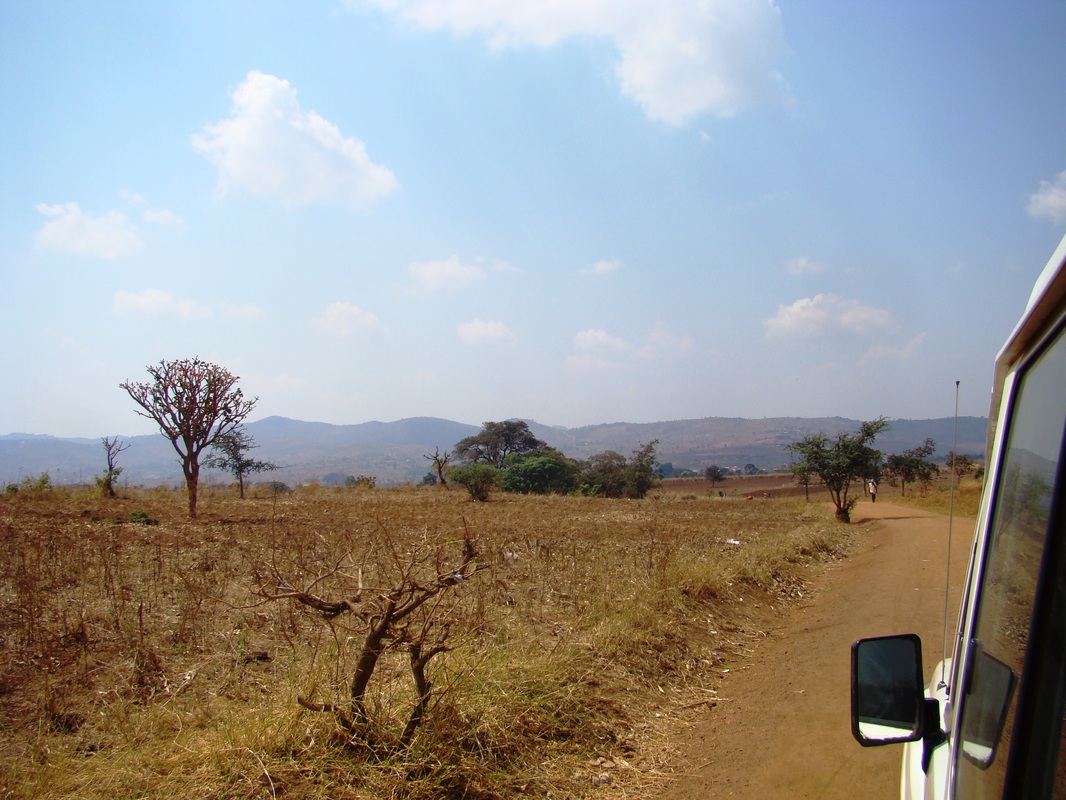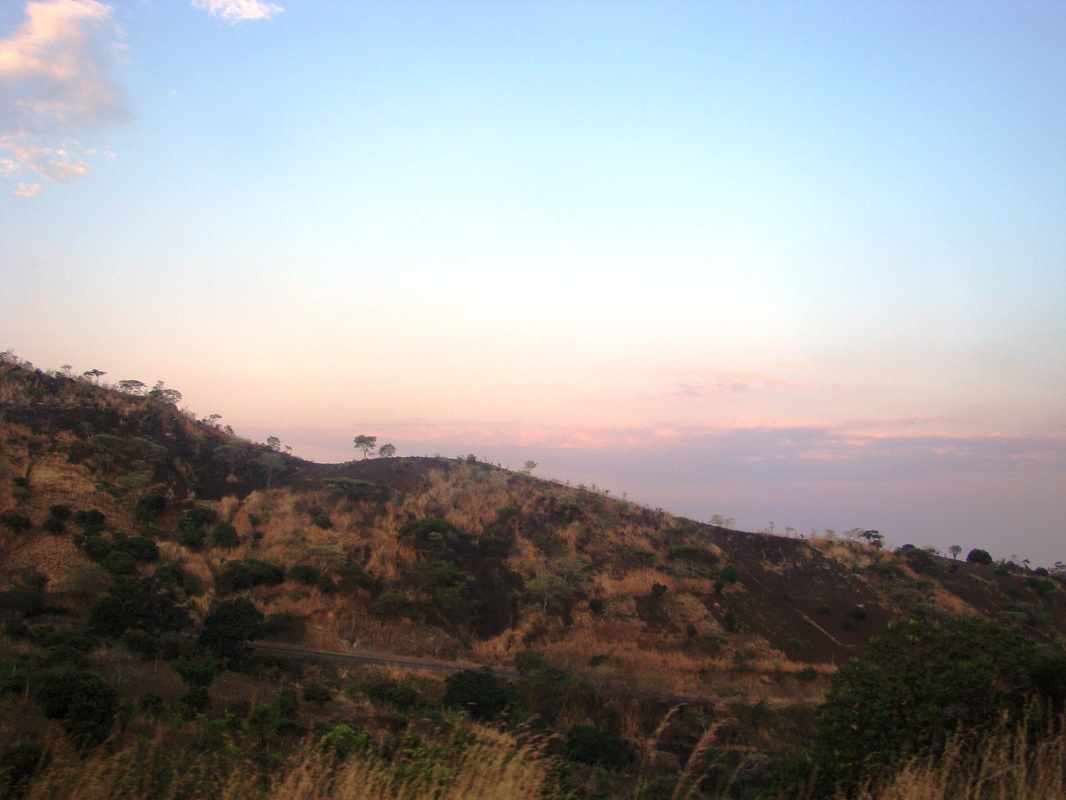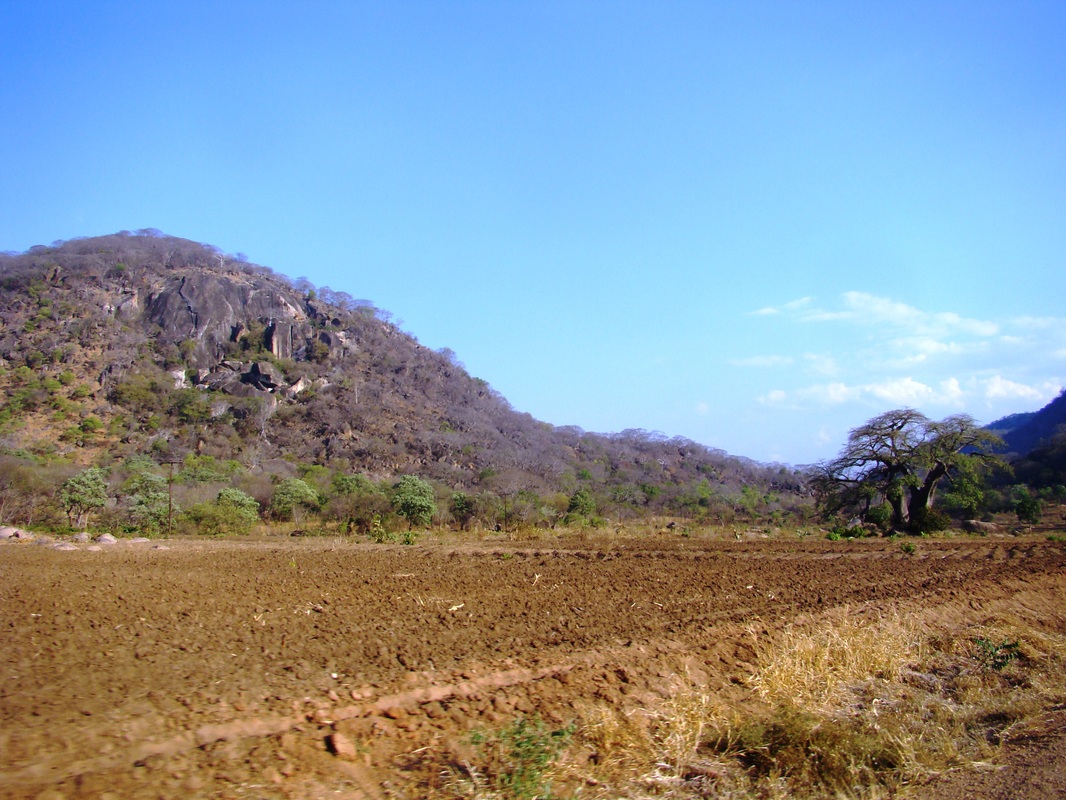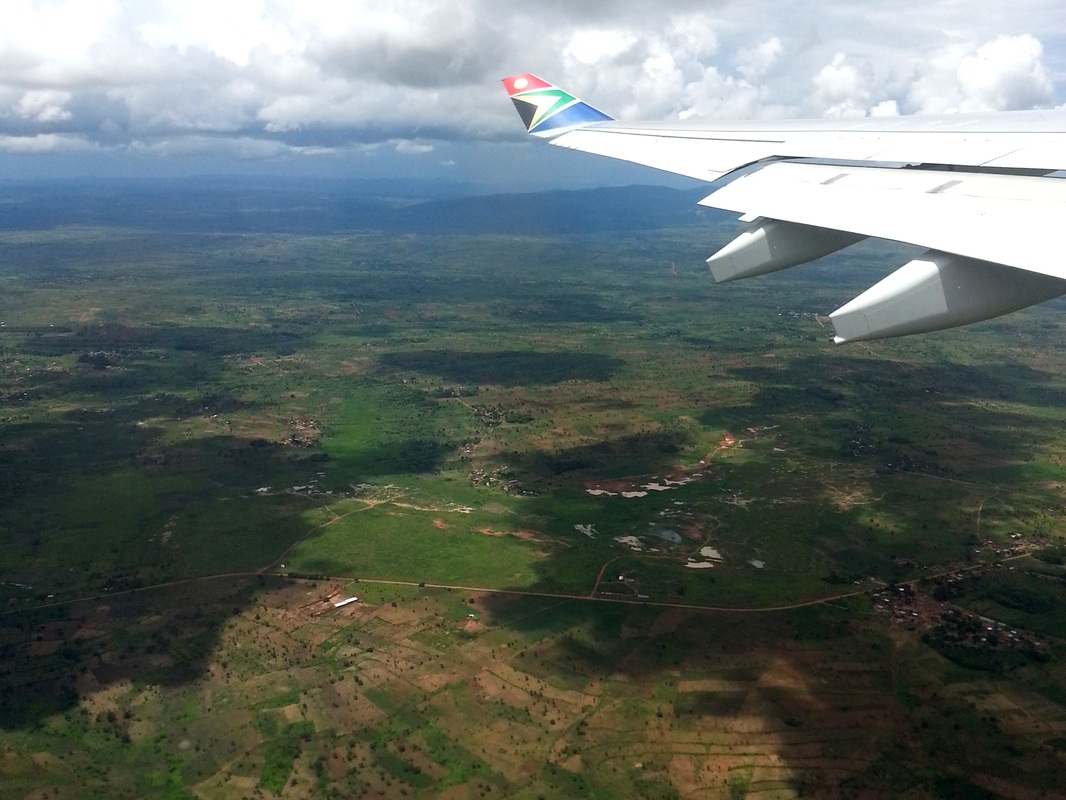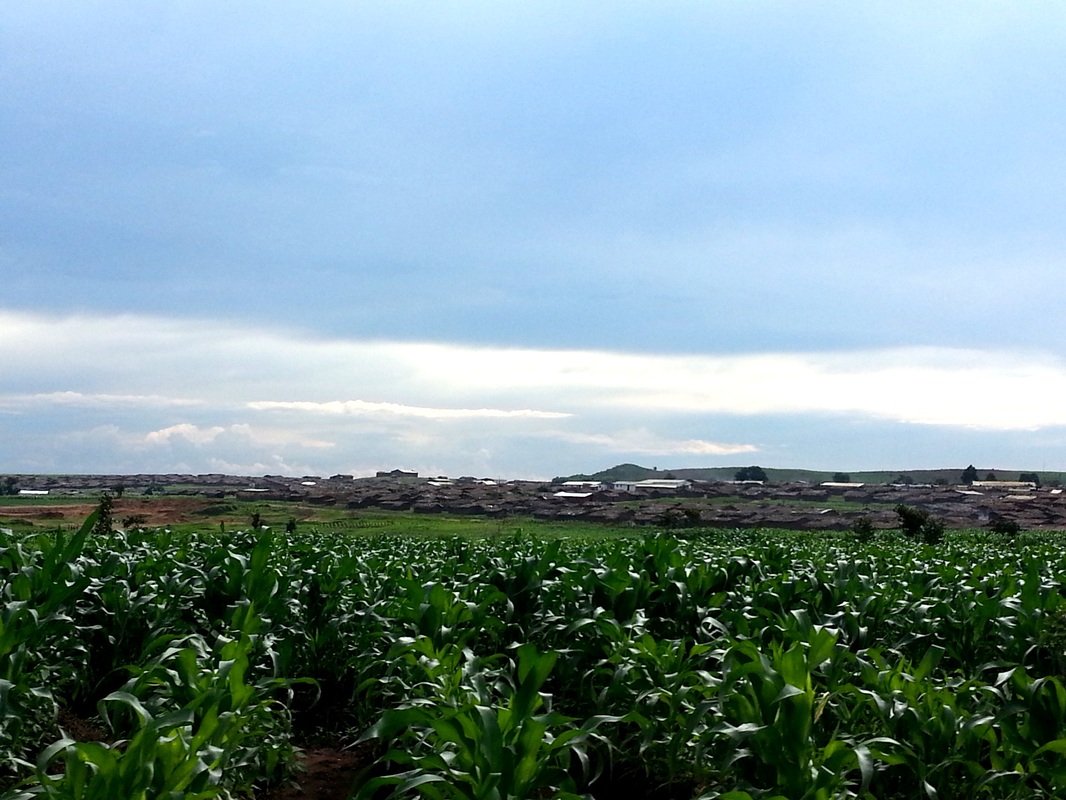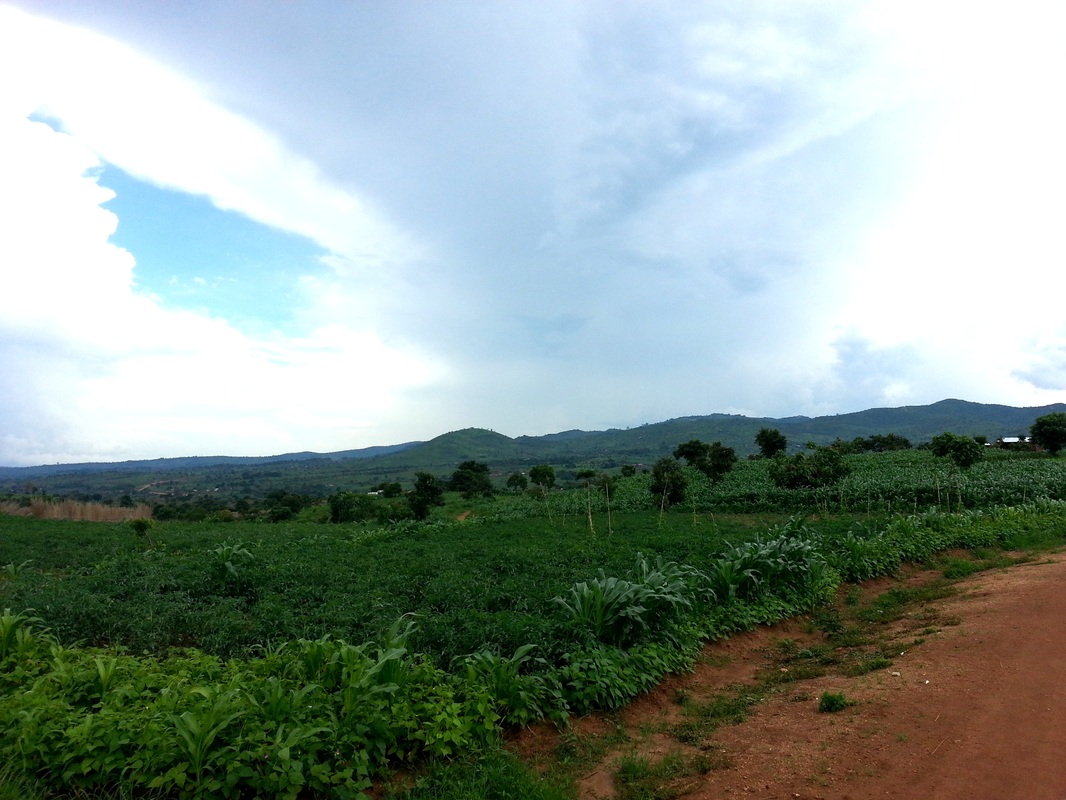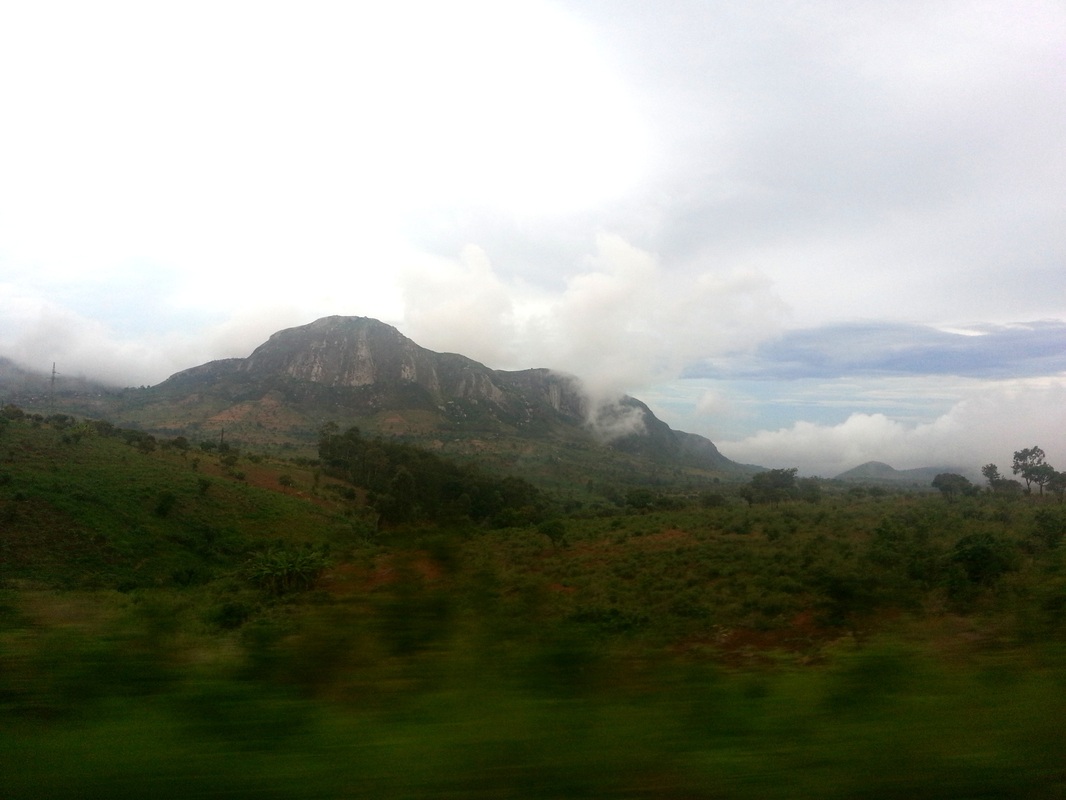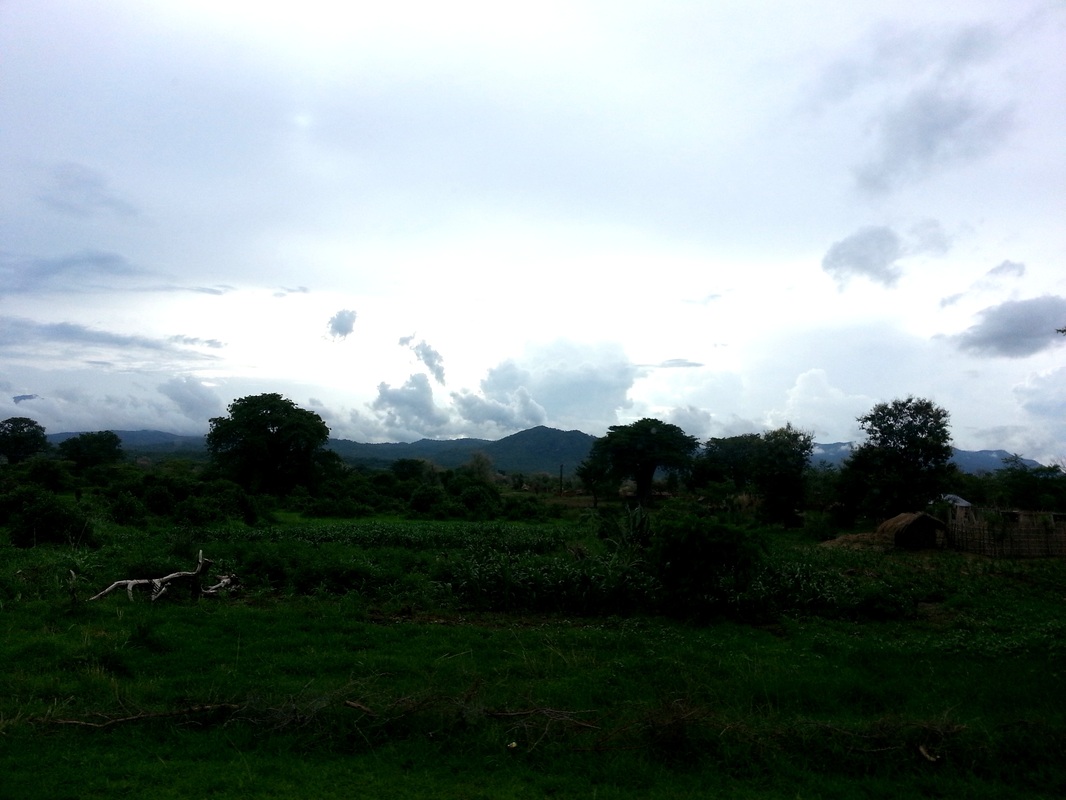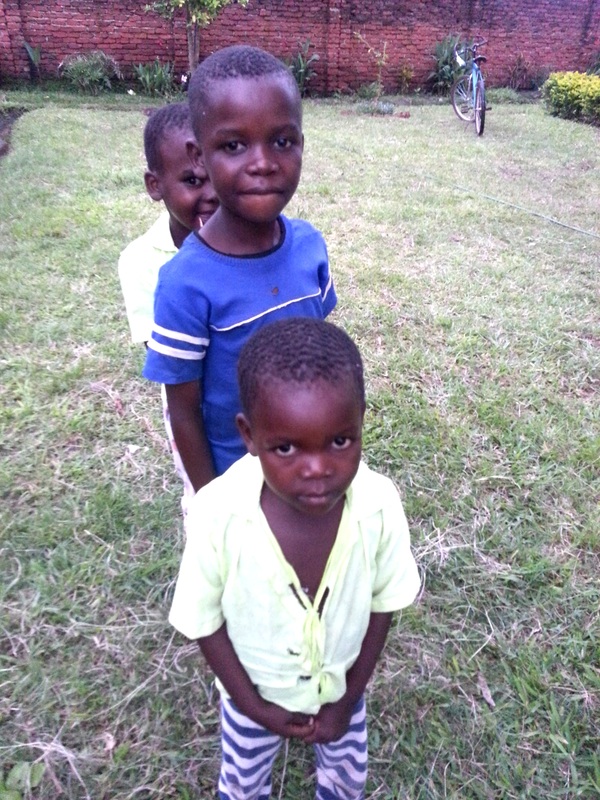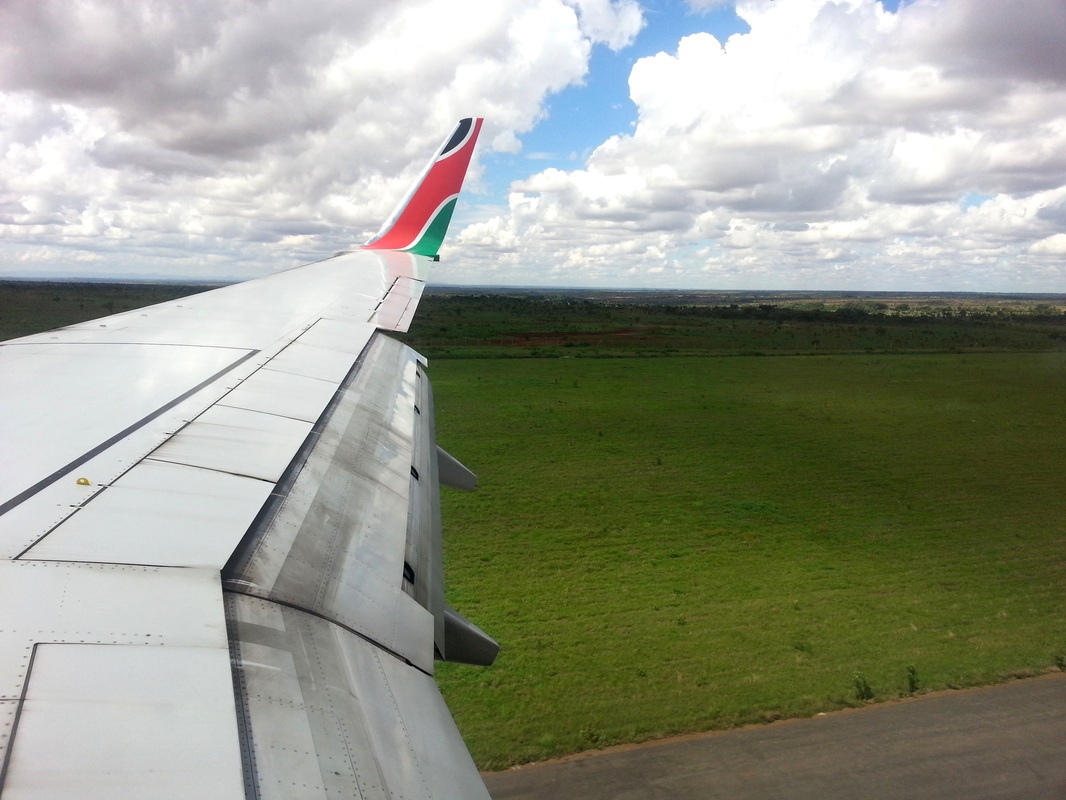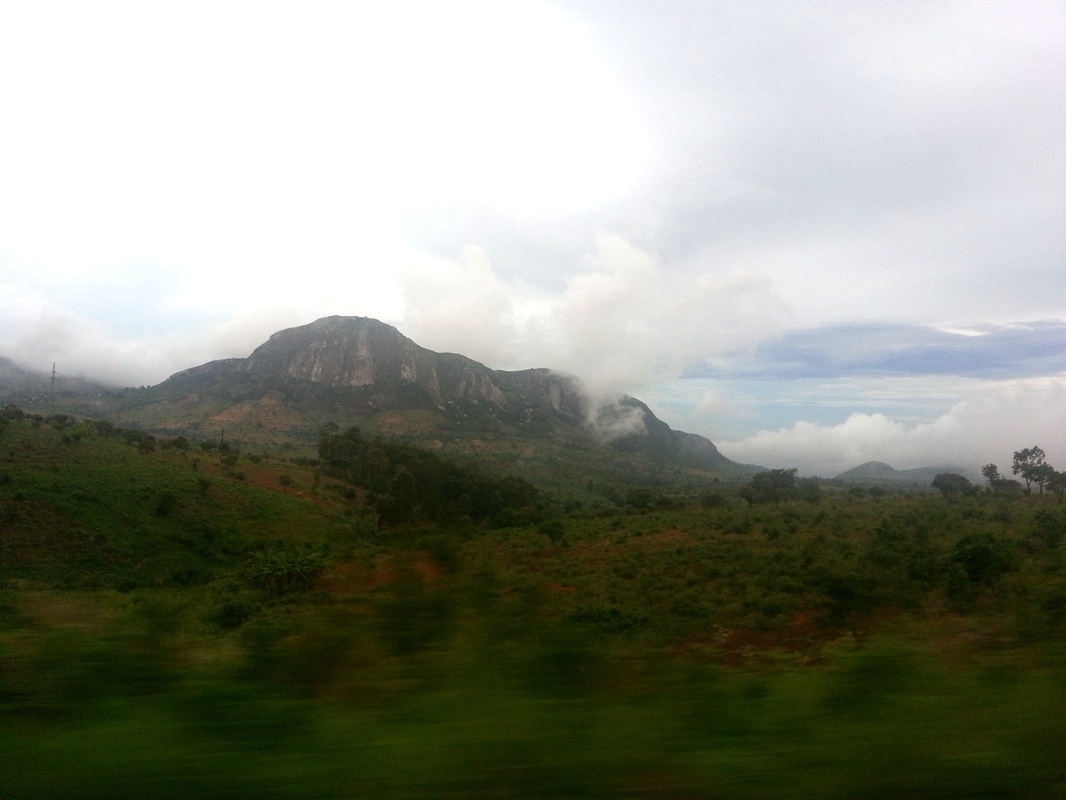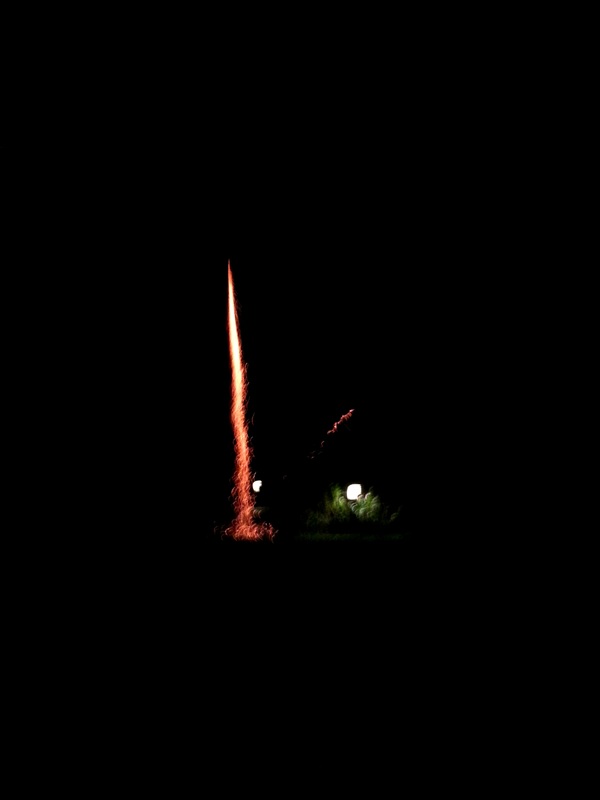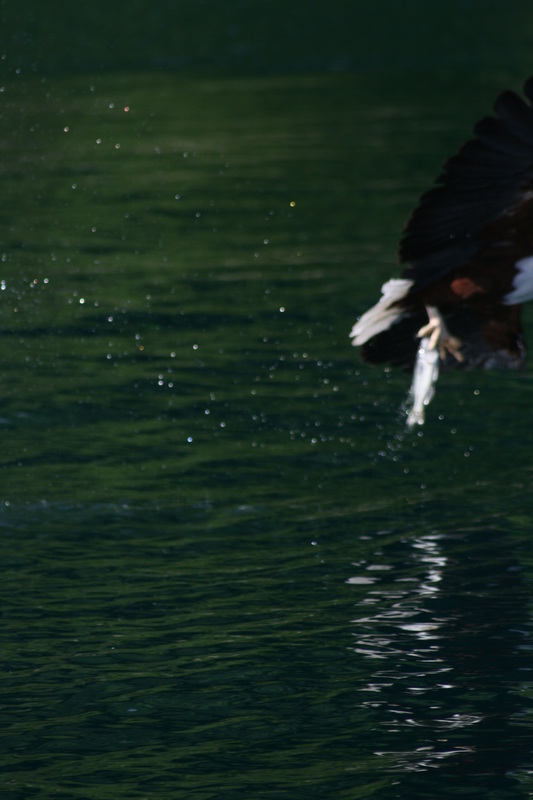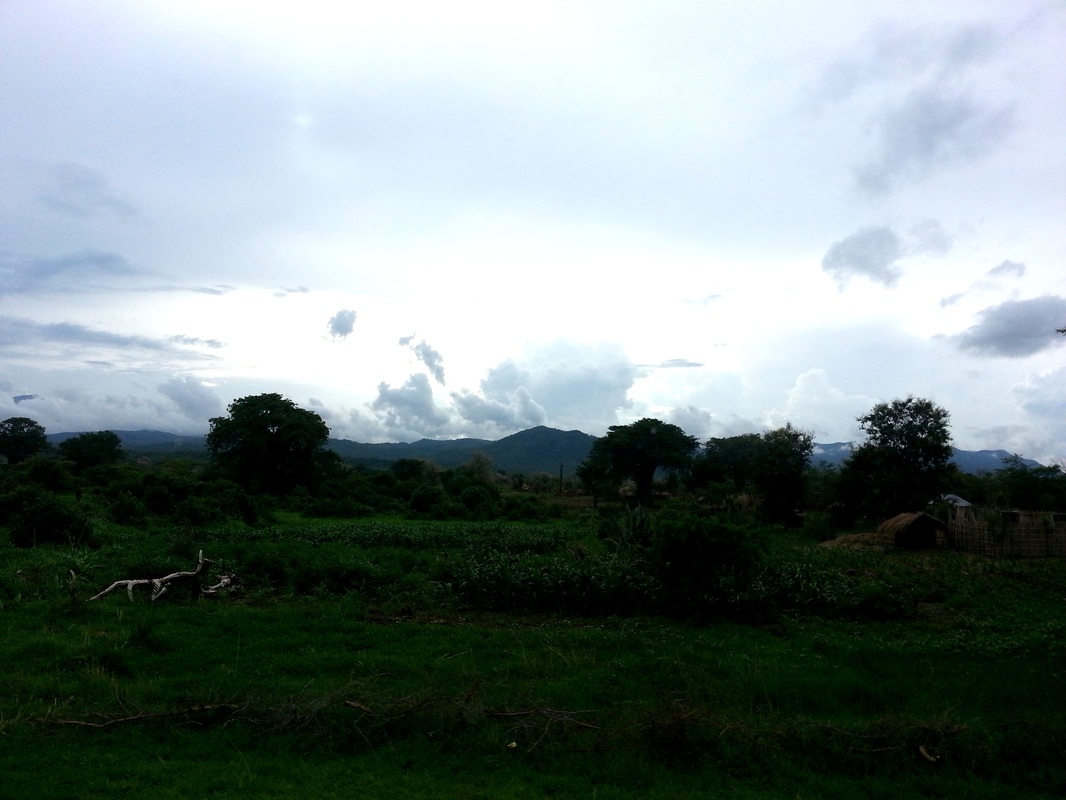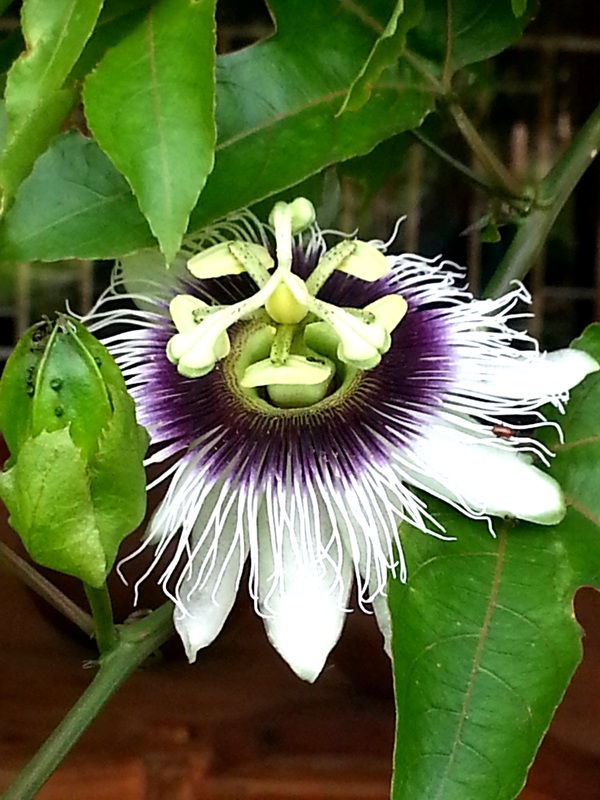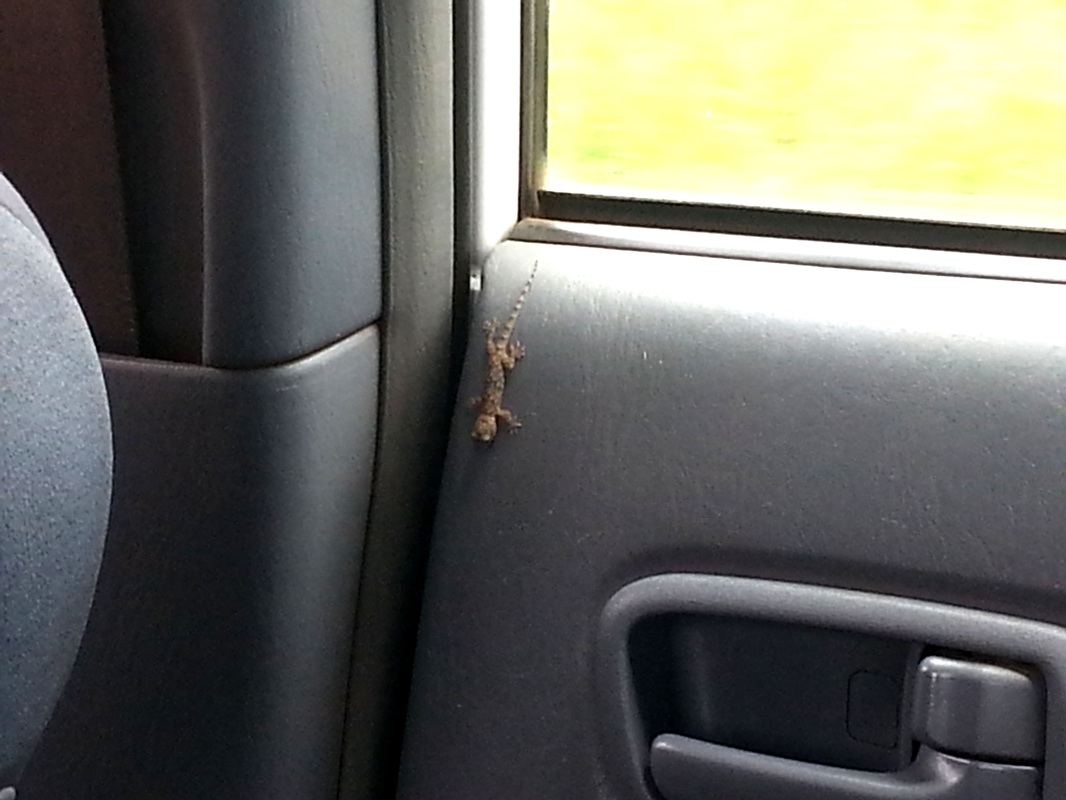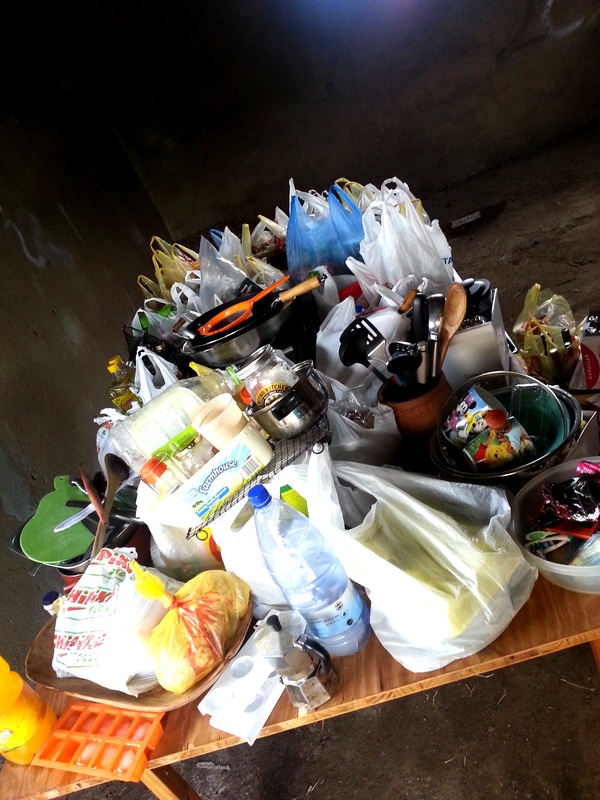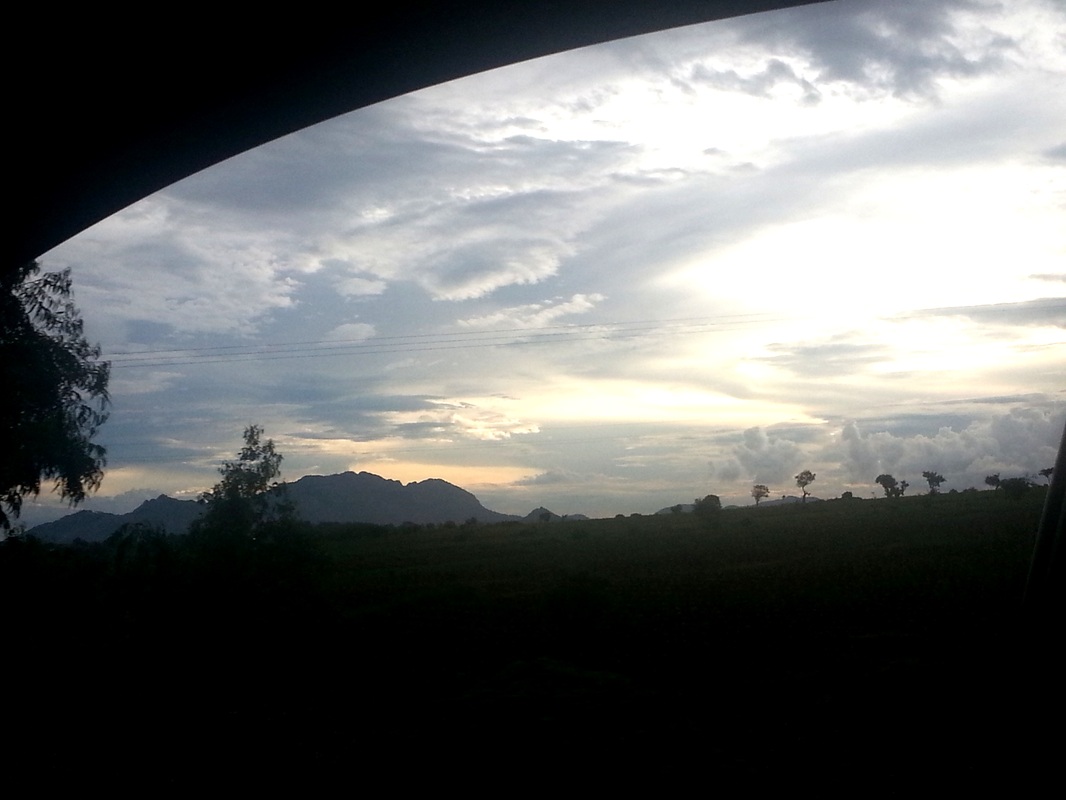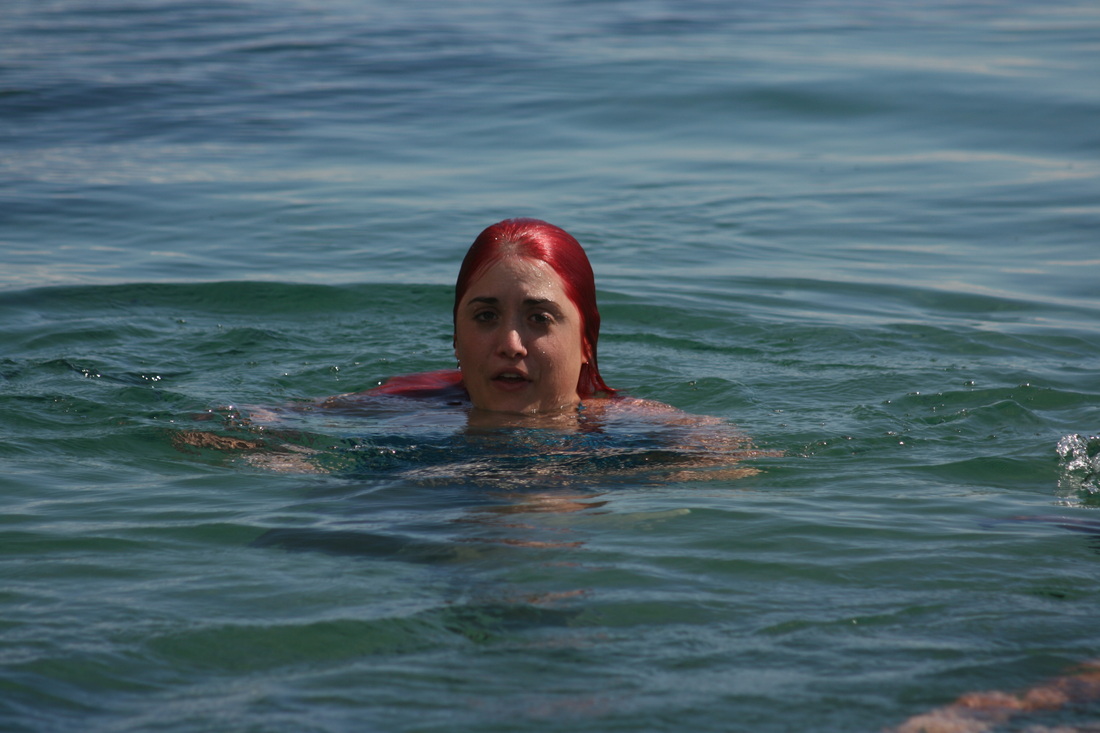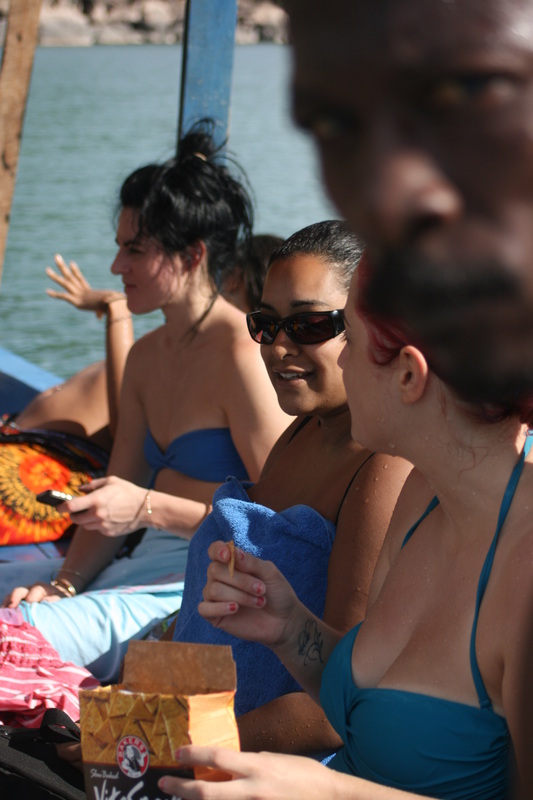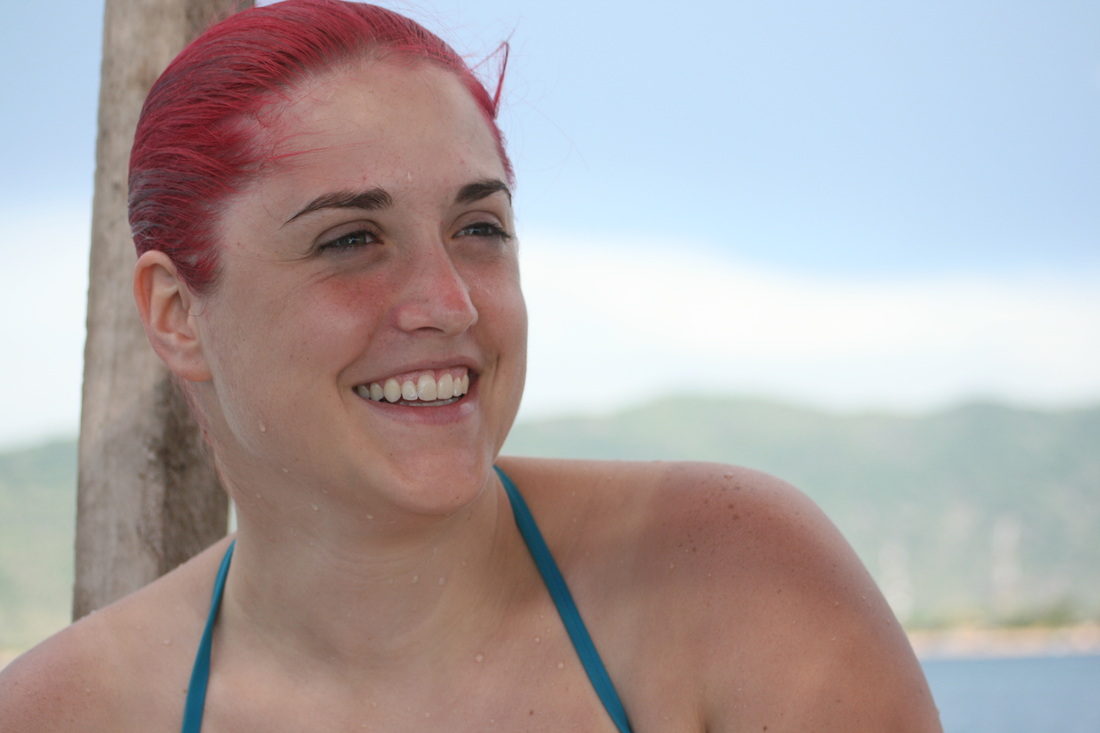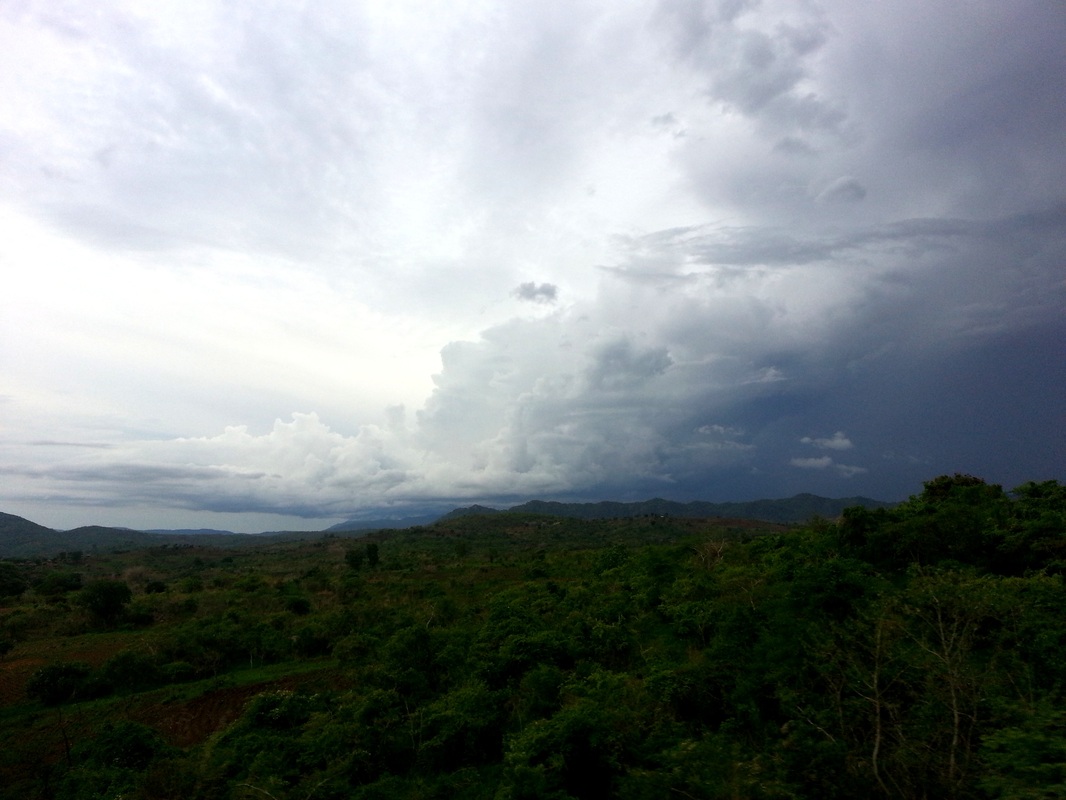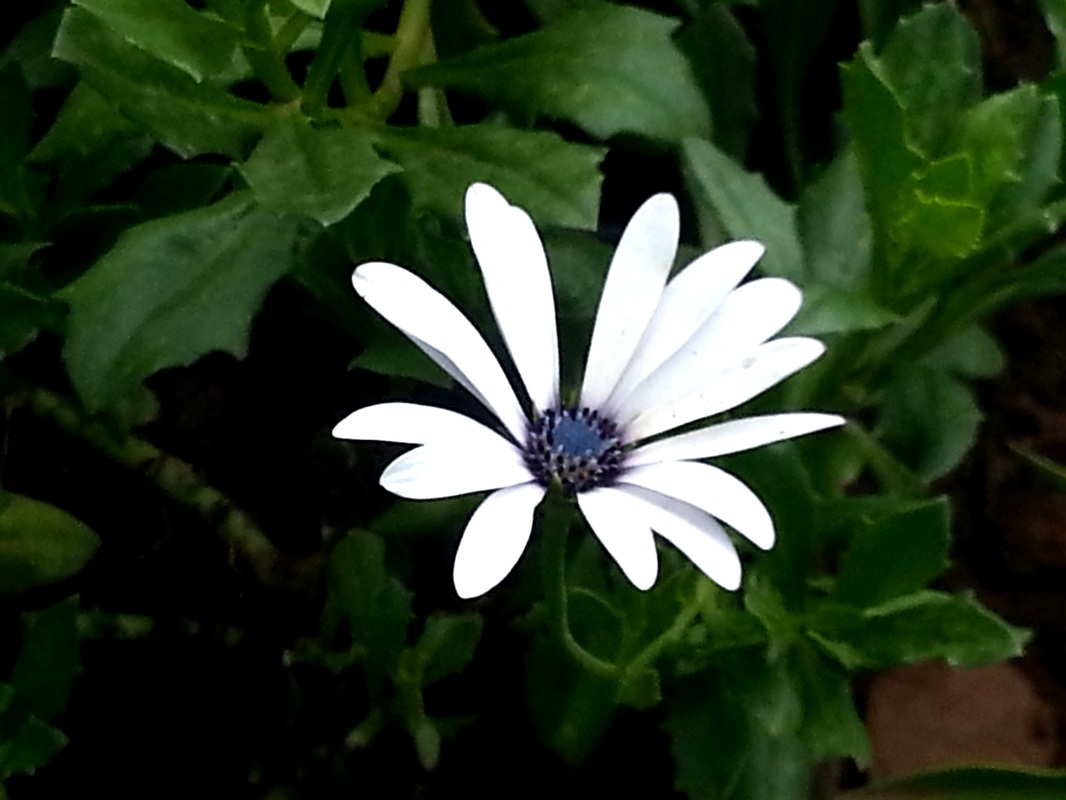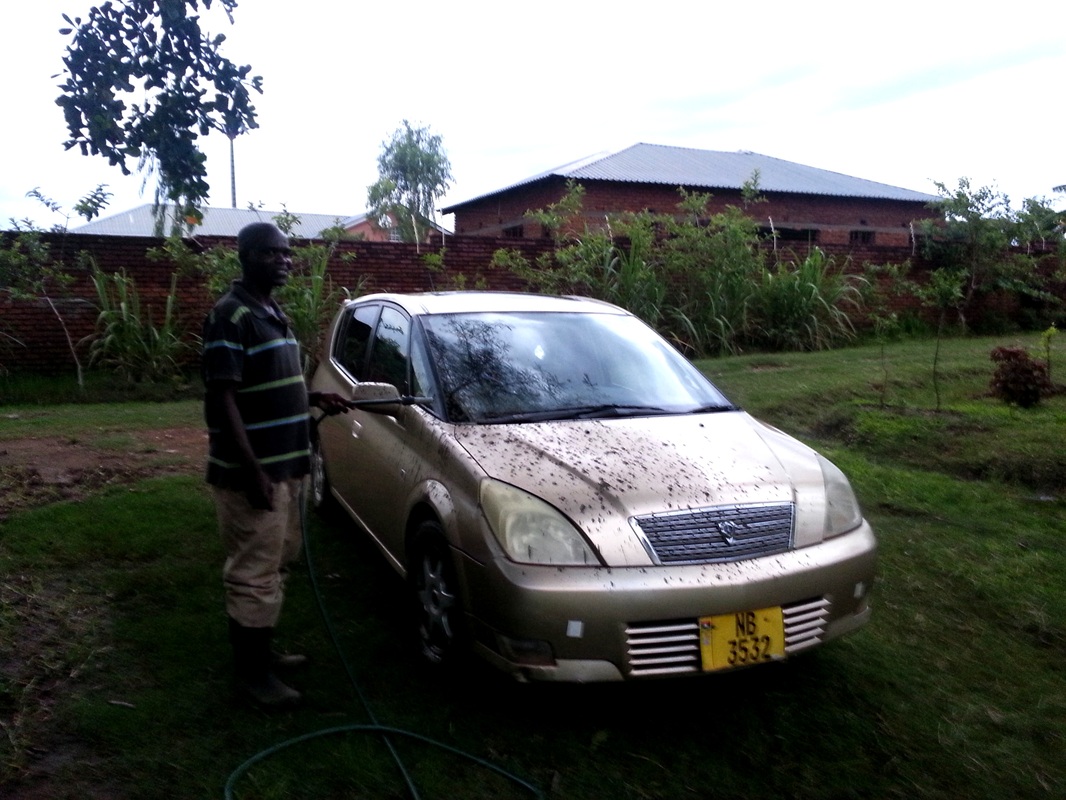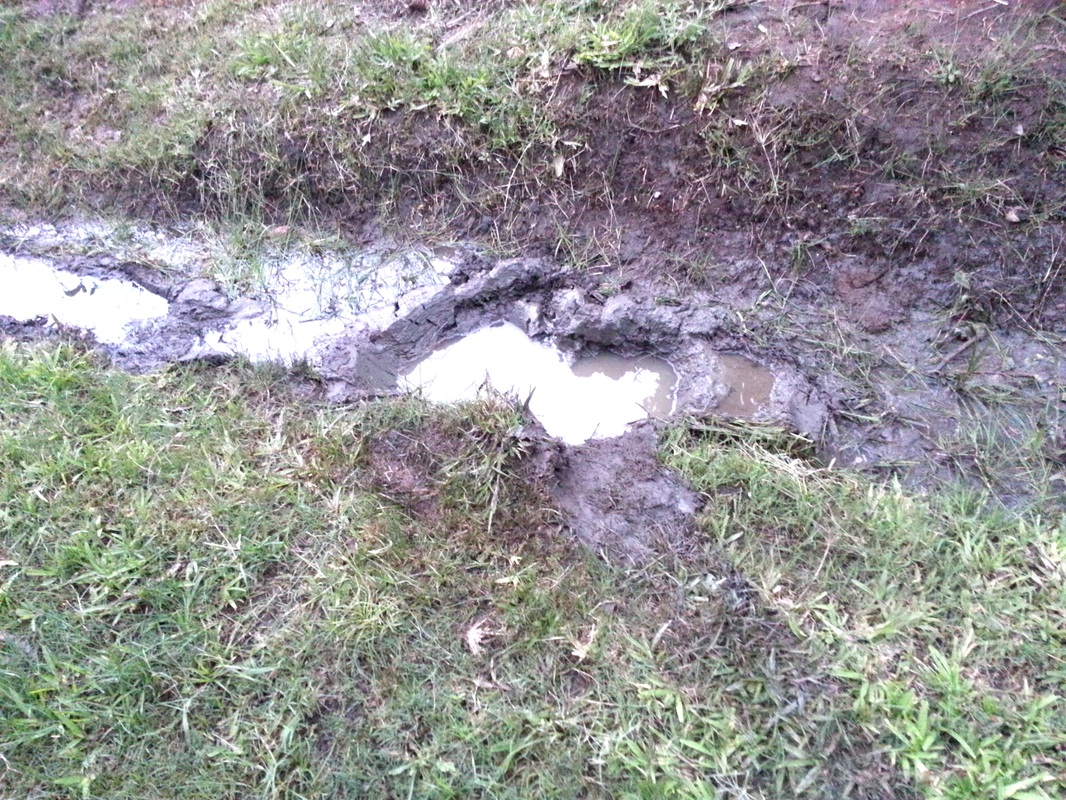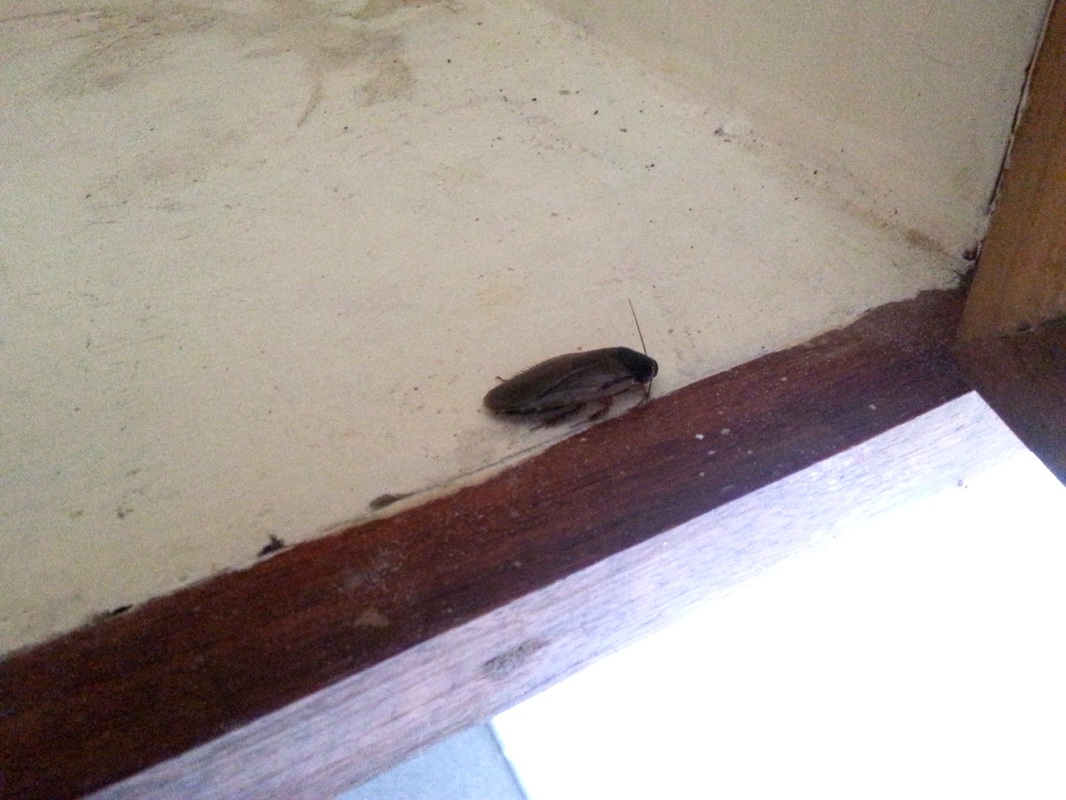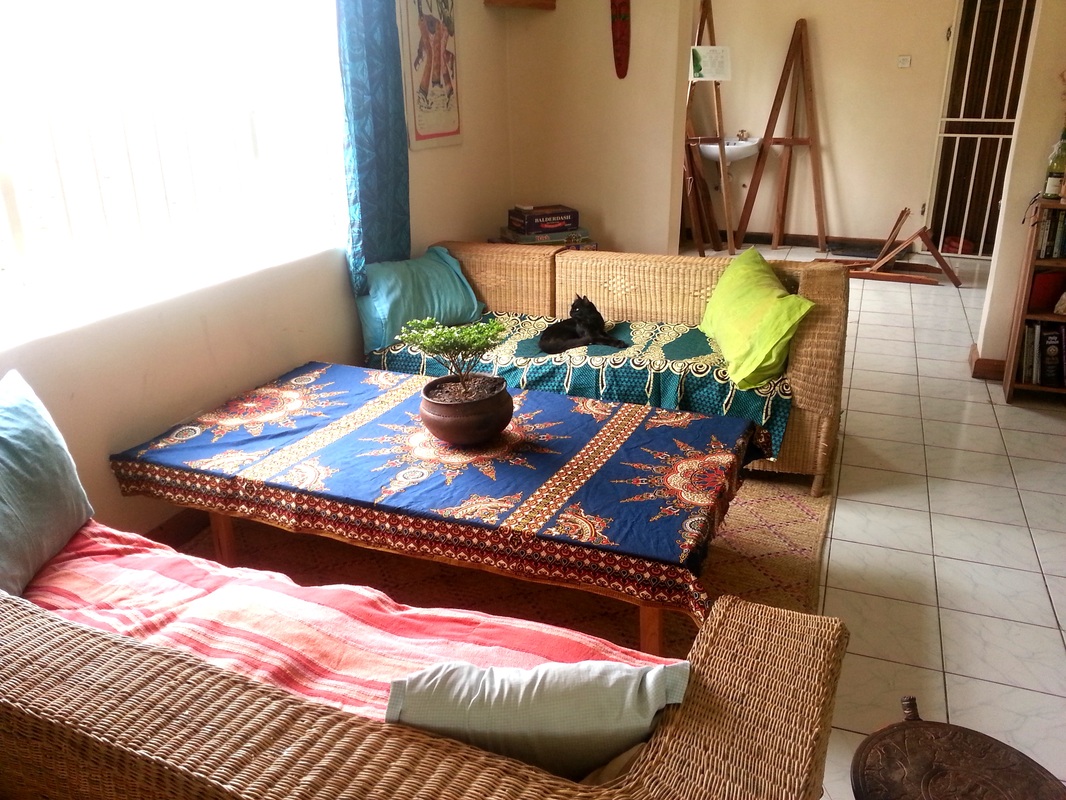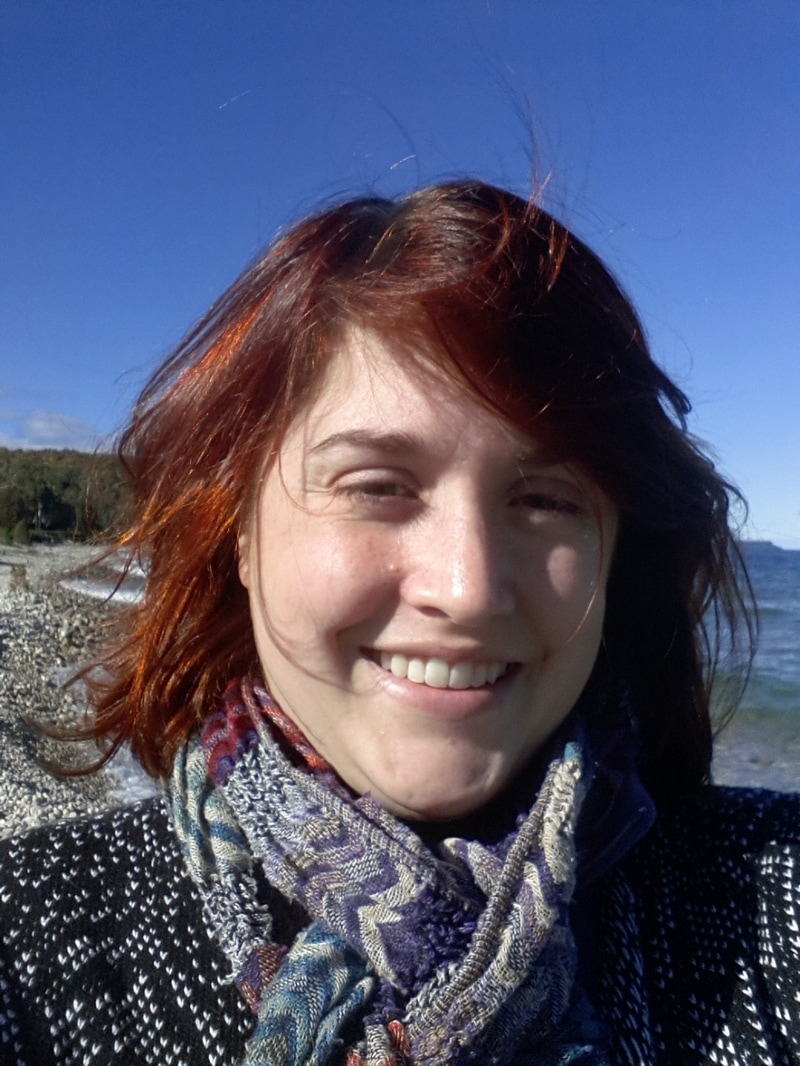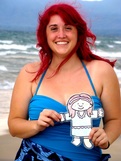|
Take a few minutes to watch this video about a young woman who changed the way her village regards education. Her young wisdom allowed for her to change not only her future, but that of others in the village. This is such an inspiring story! I am so blessed to be following my dreams without significant hardship, and am hoping that the work I do that is allowing children with special needs in Dzaleka Refugee Camp to attend school will result in a similar change in perspective. Parents of the children I work with are realizing the untapped potential of their children - the intelligence and fortitude that these kids have, as they see them grasping concepts and activities that they had never before been given the opportunity to learn.
0 Comments
I made this video tour of the house for my former housemates to show their friends and family, and thought mine might enjoy it as well - it gives you a better visual of where I've been living for the last term, and where I will be until the end of April. (And I get super awkward on video, so feel free to ignore my blathering!) The following essay is one I wrote for my current INDEV course (edited a little to shorten!), and shares the story and art of a friend of mine who lives in Dzaleka Refugee Camp. A powerful wordsmith and captivating performer, Trésor Nzengu, also known as Menes La Plume, is bringing attention to the trials refugees experience through his work. He writes and performs hip-hop and slam poetry, primarily focused upon the difficulties that he and his friends have faced as refugees. Although the arts culture in Malawi is rather small, he has successfully built a fan base and performs regularly at events in and around Lilongwe. Trésor is from the Democratic Republic of the Congo, where he became a local celebrity, performing live around the country, and on television and radio shows. Unfortunately, a few years ago, his work, always aimed at creating change, was interpreted as being written against the government and regime in place in the DRC, and Nzengu had to flee for his life. He eventually arrived in Malawi and has since been living in Dzaleka Refugee Camp, where he has been inspired to write pieces that express the experiences that fellow refugees share with him. Trésor primarily writes and performs in French, but has begun to also work in English, and does also incorporate some Swahili and Lingala into his poetry. As an artist of words, Trésor is motivated by effective communicators such as Mahatma Gandhi and Martin Luther King Jr., and in an interview, stated that his aim to change the world by changing people’s minds and raising awareness of the struggles that Africa is facing. His work, beautifully constructed poems that are performed dramatically with a backdrop of talented vocalists and musicians (usually fellow refugees), are emotionally complex, and take the audience from the highs of an easy life to the lows of extreme loss. One powerful piece, ‘A Quoi Bon’ or ‘What Is Good’, is particularly morose, examining the futility of life in the refugee camp, and Nzengu bares his soul when he writes “Vivant avec larmes aux yeux toujours en quête du bonheur qui ne se trouve nul part ici bas – a quoi bon!”, or “Living with tears in his eyes, always in search of happiness which is nowhere down here – what is good!” Another poem, entitled ‘Dans La Peau D’Une Fourmi’ or ‘In The Skin Of An Ant’, draws a comparison between his experiences as a refugee and the strengths and weaknesses of an ant. One of Trésor’s few poems in English, ‘Imagine’, was written for World Refugee Day 2013, and graphically describes stories of refugees that he has met in Dzaleka Refugee Camp. It contains the haunting refrain: “If it happened to others, it can happen to you too. At every performance I have seen of ‘Imagine’, it has brought audience members to tears and has spurred conversation regarding refugees and the events that precipitated their need to flee. This is exactly what Trésor had hoped to spark through writing these stories into a poem – to humanise and change the perception of refugees to those who do not see them as individuals. Nzengu does not perceive his work as being political, arguing that although it may contain political themes in dealing with refugee stories and opinions, he is not trying to be political, and is rather trying to speak on behalf of the people who are scared to share their stories outside of the safety of their houses. I would argue that contemporary art is a reflection of the culture it represents, and as such, is inherently political, though it may not contain outright political statements. The content of Trésor’s poetry, the stories of refugees, inevitably involves politics as it describes the circumstances that led to families fleeing their homes, and as such, although he does not consider his work political, I believe that it is. Nzengu’s work is politically significant in Malawi, as it depicts the lives of the refugees that currently reside in Dzaleka Refugee Camp and his opportunities to perform in front of Malawian and international politicians could change the perception of refugees’ residency in Malawi. A secondary argument for the political content and context of Nzengu’s work is that an interpretation of some of it was the inciting incident that resulted in him becoming a refugee. Once again, although Trésor does not want his work to be perceived as political, it clearly has been, and as such, has a political significance in that context. Trésor does consider himself to be an activist and is energetically trying to change the society that he has found himself immersed in. At his shows and performances, he often shocks the audience with graphic words and images of the trauma that refugees and residents in conflict-ridden areas experience, and challenges them to use the shock to share with others and make change happen. He has been able to perform at an annual concert weekend in Malawi, at the Lilongwe community theatre, various business and networking events, and at multiple embassies, sharing his art and raising the profile of the refugees in Malawi. Trésor considers his work a success when he is able to help his listeners understand that refugees are people just like them, with potential, skills, and an uncontrollable circumstance that has resulted in them becoming refugees. Trésor also performs within Dzaleka Refugee Camp, and has found that his fellow refugees appreciate hearing their stories through his artistic interpretation, and that they also find hope in the fact that he is able to perform outside of the camp, as they can believe that one day they can grow beyond being a refugee and succeed as well. Nzengu began a Cultural Association within Dzaleka Refugee Camp as a way to give resident artists a way to network and regain their inspiration to create, and is an active member of the Lilongwe Poetry Club. He stopped writing for four years after arriving in Dzaleka, and has credited his current emotional health to the creative outlet that he found when he began to write again. The actions of Trésor to create a space for the arts within the camp are resulting in a greater willingness among refugees to share their stories publicly, and the reincorporation of the arts into daily life is contributing to individual’s healing process from the trauma of the past
Trésor Nzengu is an inspiring and powerful artist, who is using his skills to manipulate words into a tool of change. The unconsciously political nature of his work is modifying Malawian and foreigner’s opinions of refugees within Malawi, and is increasing the dialogue surrounding their circumstances. Trésor’s poetry is creating social changes within the city of Lilongwe and Dzaleka Refugee Camp, helping refugees to voice their stories without fear, and heal from the trauma they have experienced. One aspect of life that I supremely dislike is having to say goodbye to friends too quickly. I guess I will have to get used to it though, because the career path I have chosen involves a lot of that - at least, among the fellow expatriates in the international development world! I am so thankful for the many people I have met and gotten to know on placement this year, and am excited to have now met a few new volunteers that are here for this next term.
I had the pleasure of introducing them to a Lilongwe weekend recently, and we had a lot of fun together. Lara is from Seattle and is working with me at JRS, Yanara is a German transplant to Ontario here through WUSC (like me!) and is living at my house with me, and Sasha is another WUSC volunteer from British Columbia, and is living and working with AYISE in Blantyre (same organization as Anna, my fellow Malawi INDEVOUR).
The hands of the ladies in the Umoja Craft group are weathered like those of my father - they work hard, pouring their love for their children and determination to give them a better life into their creations. And the beauty that rises out of the raw and recycled materials is like a phoenix, bringing hope to the women and life back into their faces as they share with one another the trials and successes of life.
Something that really bothers me about the consumerism rampant in today's world is the unrelenting resulting garbage that ends up strewn across our planet. Malawi does not have a garbage disposal system, so people burn their garbage or dump it in an empty lot near their house. As you walk down the road, you step across piles of broken glass, avoid blowing plastic bags, and sometimes (more often for clutz-extraordinaire moi) slip on plastic food wrappers that end up underfoot. I have read many times about the issues of garbage in developing nations, and living here has given me even more of a passion to fix this ( / maybe an irritation with the needless disorder and negligible recycling... I am German, after all!). Thankfully, there have been some developments in the past few years, by people from my generation, that are giving me hope that there may be a way out of this mess, and the will to get it done. Both approached the problems in profound ways - coming up with simple solutions that 'smarter' people with PhDs and such didn't think of as options.
The first is a teen from the Region of Waterloo (my home region!), who, realizing that if plsatic does decompose, there must be microbes that do the decomposing and could possibly be manipulated, bred a strain of microbe that eats plastic much faster - which reduces the time required for the degradation of plastic from hundreds of years to a few weeks! Read more here if you are interested. The second is a teen who invented an ocean cleanup array that is solar powered and filters plastic out of the ocean,separating it from organic material, and allows it to be recycled. Again, if you'd like to read more about it, click here. Rainy season is here in full force, and the red dirt is disappearing underneath a thick covering of vibrant green plant life. It is shocking how different the views are now on the way to and from camp as compared to September! I remember landing in Lilongwe and despairing that it could ever by as much of an eyeful as the green of Rwanda I experienced. But it is now rivalling those memories with the intense colour that grabs your eyes whenever you drive through the countryside. I love it! Isn't that contrast so neat? I find it absolutely amazing how different everything looks now, scant months after arriving!
My poor brain has been through the wringer this past month - I speak English in my day-to-day, with scattered Chichewa and Swahili words thrown in, have conversations in French with certain refugees, and now just spent a week speaking German to my relatives! And as much as I love learning new languages, trying to pick up the bits of Chichewa or Swahili that I hear is difficult! I am not immersed in it - actually, most refugees want to work on their English and prefer to converse in it, or in French. I recently read an article about bilingual babies compared to monolingual babies, and the differences that learning multiple languages at a young age can make in brain development. The findings are fascinating, and I am so thankful that I was around multiple languages as a baby and young child, as I have definitely noticed throughout my life that language acquisition is often easier for me than for friends who didn't have a second language spoken in the home. Here are some key quotes from the article: “What the study demonstrates is that the variability in bilingual babies’ experience keeps them open,” said Dr. Patricia Kuhl, co-director of the Institute for Learning and Brain Sciences at the University of Washington and one of the authors of the study. “They do not show the perceptual narrowing as soon as monolingual babies do. It’s another piece of evidence that what you experience shapes the brain.” "In a study of older infants shown silent videotapes of adults speaking, 4-month-olds could distinguish different languages visually by watching mouth and facial motions and responded with interest when the language changed. By 8 months, though, the monolingual infants were no longer responding to the difference in languages in these silent movies, while the bilingual infants continued to be engaged." If you'd like to read more, check out the article here.
The first week of the 2014 was a busy one - I arrived in Lilongwe on the 30th, unpacked and repacked for a trip to the lake, and a group of friends and I headed off that evening to stay at a lakeside cottage in Monkey Bay with the Moura family. We spent a lovely few days on the lake (well, for me, more of it was IN the lake, but that's not new or unexpected!), played games, ate a ton of food, celebrated the New Year, and then headed back to Lilongwe. My housemates, Jo and Jo, made the exciting decision to have the house fumigated, so we moved a bunch of our belongings and the entire kitchen out of the house, and then spent a day away from the fumes before cleaning the insect apocalypse up and moving back in. I also managed to get my car stuck in the ditch bordering the garden, so we had a fun and muddy time extracting it! We also made a trip to the local garden centre and got some more plants to add to the burgeoning garden in our yard. It was a fun and relaxing last bit of holidays before returning to work.
|
AuthorWelcome! My name is Katiana and I am a development professional pursuing my dream to live out Isaiah 1:17 to the best of my abilities. I am passionate about teaching and working with vulnerable families and children to improve their lives sustainably.
CaveatThis blog is composed of my personal opinions, which do not necessarily reflect the opinion or views of institutions or organizations that I may be or have been affiliated with.
Categories
All
Archives
July 2017
|
